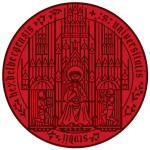Study In Schengen
Introduction
The Schengen Area, encompassing 27 European countries, offers a unique opportunity for international students to experience high-quality education across borders. Home to some of the world’s oldest and most prestigious universities, the region is a center for innovation, culture, and diversity. With over 1.3 million international students, the Schengen Area is a thriving destination for academic and personal growth.
Insights Into Top 3 Colleges In Singapore

Global Ranking: #33
University of Copenhagen (Denmark)
Annual Enrollment: ~37,500 students.
Acceptance Rate: 40%
Notable Alumni: Niels Bohr (physicist), Bjørn Lomborg (economist).
Popular Courses: Environmental Sciences, Medicine, and Humanities.

Global Ranking: #43
Heidelberg University (Germany)
Annual Enrollment: ~29,000 students.
Acceptance Rate: 17%
Notable Alumni: Max Weber (sociologist), Angela Merkel (former German chancellor).
Popular Courses: Engineering, Law, and Health Sciences.

Global Ranking: #59
Sorbonne University (France)
Annual Enrollment: ~55,000 students.
Acceptance Rate: 30%
Notable Alumni: Marie Curie (physicist), Roland Barthes (philosopher).
Popular Courses: Arts, Law, and Natural Sciences.
Focus Points of Schengen Universities
Academic Excellence
Professors are leaders in their fields, often with Nobel Prize-winning contributions.
Collaborations
Partnerships with companies like Airbus, BMW, and Total ensure robust internship and job opportunities.
Holistic Development
Emphasis on arts, culture, and global citizenship alongside academics.
Flexible Learning
Blend of in-person, online, and exchange programs across the Schengen countries.
Why Students Prefer Studying In Singapore
- World-Class Education: Home to over 25 universities ranked in the global top 200.
- Cross-Border Access: Students can travel freely between Schengen countries with a single visa.
- Affordable Tuition: Many universities, especially in Germany and Nordic countries, offer free or low-cost education.
- Rich Cultural Diversity: Experience the heritage and lifestyle of multiple European cultures.
- Post-Study Work Opportunities: Graduates can apply for work permits to stay and work for up to 18 months (varies by country).
- Scholarships & Grants: Programs like Erasmus+ and DAAD provide extensive funding opportunities.
- Safe and Secure: Most Schengen countries rank high on the global safety index.
- Multilingual Learning: Programs offered in English, French, German, and other major languages.
Your Guide to Higher Education in Singapore
Discover the most in-demand courses, understand eligibility requirements, and follow our step-by-step guide to mastering the application process. Your journey to a prestigious education begins here.
Options, Requirements & Process Overview
Popular Courses for International Students
- Business Administration & Management
- Medicine & Health Sciences
- Engineering & Technology
- Arts, Literature &
- Philosophy
- Data Science & Artificial Intelligence
- Environmental Sciences
Eligibility
Requirements
- High school diploma or bachelor’s degree, depending on the program.
- Language Proficiency: IELTS (6.0+), TOEFL (80+), or country-specific requirements for English or local languages.
- Financial proof to cover tuition fees and living expenses.
- Additional requirements for some programs like GRE/GMAT, portfolio (for arts), or work experience.
General Application Process
- Research Universities: Explore institutions in Germany, France, the Netherlands, and other Schengen countries.
- Prepare Documents: SOP, LOR, academic transcripts, and test scores.
- Apply Online: Use centralized platforms like Imigra.
- Offer Acceptance: Receive a formal admission letter.
- Visa Application: Apply for a Schengen Student Visa with necessary documentation.
FAQs
Can I work part-time while studying in the Schengen?
Yes, most countries allow students to work up to 20 hours/week during the academic term.
Are there programs taught in English?
Yes, many universities in the Schengen Area offer programs in English across various disciplines.
How long can I stay after graduation?
Graduates can apply for post-study work permits, typically ranging from 6 months to 2 years, depending on the country.
